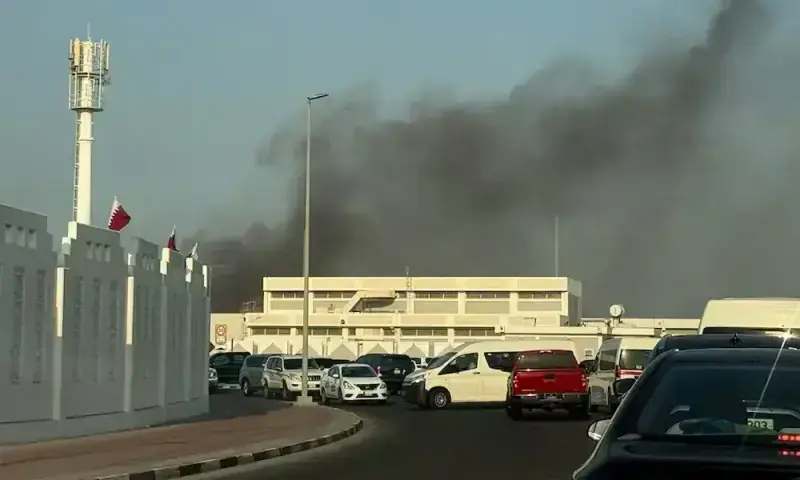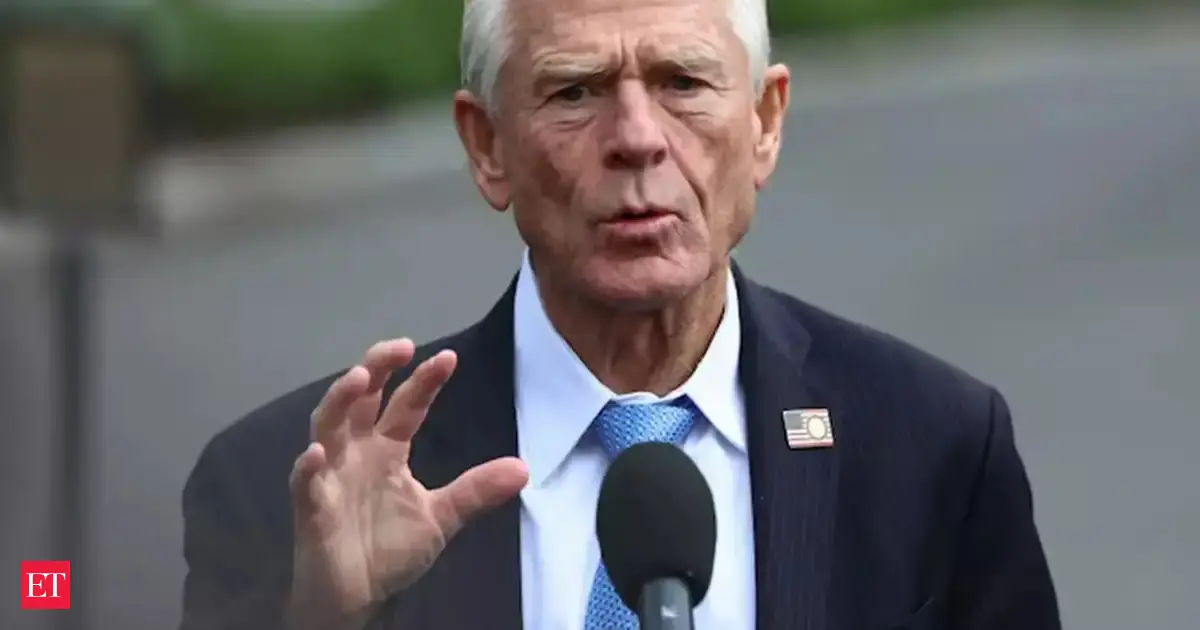By Qamer Soomro
Copyright brecorder

Even a close, long-time trusted US ally hosting the sprawling and largest American air base, Al Udeid, was not spared by arrogant and intransigent Israel—flying too high on US weapons, dollars, and blind Western support, with no one daring to restrain this darling of the West in its show of terror and firepower.
Qatar, despite boasting one of the most American advanced early warning radar systems and air defense networks, could not detect the assault jets that violated its sovereignty. Nor could Al Udeid, with its interception capabilities, identify or counter the incoming aircrafts to warn its honourable hosts.
Israel’s daring strike on Doha, with prior US knowledge, not only questions American friendship and commitment with its allies but also badly undermines US credibility. The Gulf states, militarily weak compared to Israel’s sophisticated arsenal—including nuclear weapons—remain heavily dependent on Washington. Their wealth and resources lie open for US interests.
Yet despite trillions of dollars of commitments and even a USD 400 million luxury jet gifted by Qatar to replace an aging Air Force One, America failed its close confidant in a critical moment. Trump’s visit to Doha in May this year accompanied by pageantry of camels, horses, cyber trucks, and lavish receptions, resembled an emperor’s entry.
He spoke of “beautiful friendship,” but that friendship collapsed when Israeli fighter jets, backed by US support, violated Qatar’s sovereignty. Unpredictable Trump could not stop Israeli missiles from violating a close friend’s territory. What use is a friendship that fails the test of time?
This episode reveals the strange reality of relations between a superpower and tiny states, whose security and stability rest on US support for autocratic and unpopular rulers living extravagant lives. The Trump administration did not confront the aggressor, nor did it halt aid or threaten consequences for Israel’s actions.
Instead, White House spokesperson Karolina Lavitte merely criticized Israeli behaviour, stopping short of outright condemnation. The bitter fact stands clear: Israel, regardless of its misadventures, remains dear to Washington. US troops stationed in Qatar or stockpiles at Al Udeid offered no shield; they could not even provide warning. This is really intriguing.
The extraordinary meetings of the Arab League and OIC convened in Doha fared no better. They produced no concrete steps or practical response to Israel’s brazen aggression. It was an exercise in futility: vast wealth and resources could not be translated into action to turn Muslim strength into a formidable power.
More rhetoric, less action—talk without resolve. Once again, condemnations of Israeli actions in Gaza and the West Bank fell short of matching its arrogance and intransigence.
The gatherings, conducted with fanfare, ended with whimper and photo sessions, while Israel pounded Gaza with greater ferocity, bulldozing homes and killing civilians.
Even as US Secretary of State Marko Rubio stood in Tel Aviv on a solidarity visit, Israel intensified its bombardment with most punishing attacks in the Gaza Strip. There was no remorse or restraint; the Zionist state remained stubborn and adamant, pursuing its killing spree unchanged. This is how Israel answered the Islamic world’s call for restraint. The Doha communique did nothing to stop Gaza’s agonies.
The Arab and Muslim world must pause, reflect, and move beyond rhetoric. In a unipolar world dominated by the US since the demise of the Soviet Union, dependence on Washington has become a strategic trap. They must realize Israel is not merely an ally of the US but its strategic partner and proxy. In the wake of the strike on Qatar, Gulf leaders should have demanded that America dismantle its bases and vacate their lands. They should have threatened to cut off diplomatic, economic, and trade ties with Israel, the US, the UK, and Western states blindly supporting Israeli genocide.
Arabs should have immediately banned their skies from being used for American, Israeli, and Western military or reconnaissance purposes. They should have abandoned the Abraham Accords and sought balanced relations with Russia and China. Such a shift could bring stability to a fragile region dangerously tilted towards Washington.
What are US bases in the Middle East truly for? They are not guarantees against expansionist Israel but surveillance outposts aimed at Iran, Yemen, and any Muslim country that dares to defy Israeli designs.
Arabs must recognize that the threat does not come from Iran, Yemen, Hamas, or Islamic movements—the real danger lies in expansionist Israel, bent on realizing its dream of Greater Israel, fueled by racist and extremist ideology. Weak nations remain vulnerable and open to intimidation, and only credible deterrence can ensure their survival.
Pakistan’s nuclear deterrence offers a clear example. When India attacked, it was forced to eat a humble pie in the face of Pakistan’s matching response. Israel, too, would have to think many times before daring its evil eyes on Pakistan, knowing that any aggression would be met with devastating retaliation, shattering the myth of its invincibility. This is the world of military might: those who hold the gun dictate terms.
Russia’s war in Ukraine demonstrates this truth as well. Despite US and European pressure, Moscow continues its aggression only because of nuclear deterrence, while America avoids open confrontation with nuclear-armed Russia, fearing the consequences. Any weaker nation would have been forced into submission.
Israel’s unchecked aggression across the Middle East—attacking Iran, Lebanon, Syria, and Yemen—flows from its technological superiority and US-backed immunity. There is no diplomacy or peace because these are imposed only on the weak. Palestinians, stripped of liberty, honour, and dignity, live as aliens in their own land.
For the past two years, they have faced slaughter in Gaza through the most savage method unknown in human history, simply because they are stateless and powerless. Worse still, the US-led West actively backs their genocide. Words and condemnations have become the world’s only tactical weapon to soothe wounds that cannot heal.
The Muslim world missed another turning point for unity when Trump unilaterally attacked Iran’s nuclear facilities, evaporating two weeks of diplomacy in just two days. Instead of rallying to Tehran’s side to send a message of solidarity, the Muslim world remained silent. Their failure to act underscored divisions and dependence leaving the region even more vulnerable. Had they stood united, it would have served as a warning to the US-Israeli nexus that Muslim sovereignty is not for granted.
The strike on Doha is more than a violation of one state’s sovereignty. It symbolizes the collapse of trust in American guarantees, the futility of hollow condemnations, and need for Arabs and Muslims to embrace new strategic realities.
The world is changing fast, weary of an unjust order born out of World War II, tilted towards victors and subservient to the West. The weak have no say in this moribund system built on inequality and injustice. New power dynamics, led by China, are pointing towards an emerging global order based on justice and equality of nations, weak or strong.
The Arab and Muslim world must welcome these new realities, cast off their dependence, and claim their rightful place in global affairs. Why follow an untrustworthy and unpredictable West led by the US, which has cheated, betrayed, and abandoned them in their hour of need? The imposed order serves only Western trade and geopolitical interests.
The Global South must now demand a voice, ensuring that the aspirations of two billion Muslims are not hijacked by a handful of powerful states. The Muslim world must invest in technology, spend wisely their wealth and resources, and rise to meet the challenges of new emerging dynamics in a rapidly changing world.
For Arab and Muslim World, the choice is stark: continue to live under dependency, watching their people humiliated, or embrace emerging realities by aligning with new centers of power and reclaiming their rightful place in global affairs.
This is the call of the hour: to break free from a decaying order and embrace a new world order based on justice, equality, and the dignity of nations.
Copyright Business Recorder, 2025



